Nature Study: Humans
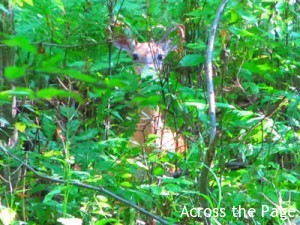 No nature study is complete without taking human behavior into account. Lately I’ve had some opportunities to think about our species.
No nature study is complete without taking human behavior into account. Lately I’ve had some opportunities to think about our species.
A local nature preserve where we enjoy going for walks has been in the news lately because of the growing deer population. They eat the wildflowers and the bark from trees, and they have apparently defoliated everything below four feet in the woods. There is also concern about the lyme disease ticks they carry. This is something I think about since we returned from our recent trip to Kentucky and picked up our dog, who was staying with my parents in their home bordering the woods. Over the first week back, we picked off 2o ticks. (!) Some of them were orange — lyme disease carriers. I’ve not taken her with us on any of our rambles since getting back, and we’re careful to check ourselves over pretty well too when we return from a walk.
The controversy over this preserve, which is located on the state university’s property, is with the university’s proposal to hire sharpshooters to come in and kill 90% of the deer over Christmas break. They would donate them to food pantries.
I understand the importance of balance. But is this really the only option? Ninety deer would be baited into the open and shot in the head by a sniper in a tree stand. I’d hope they wouldn’t shoot fawns, but this little guy that I spotted there back in August comes to mind.
The “discussion” is taking place simultaneously with another sometimes heated public debate about natural gas drilling on the Marcellus Shale, which underlies our region and much of Pennsylvania as well. It’s not uncommon to pass neighboring yards adorned with opposing signs: “No drill, no spill” vs “Pass Responsible Drilling.”
Most politicians will say they are “for safe drilling.” It would be a quick economic boon to the area. But it could also put drinking water at risk. Saying you’re for “safe drilling” amounts to having no stance on the issue at all, because it sidesteps all the real questions: how do you make non-local corporations responsible for their drilling practices? How do you monitor them? What happens when mistakes are made — as they inevitably will be, and have already been made in some Pennsylvania locales? Most basically, how can you enforce responsibility in practices that depend on humans working on a scale beyond their control? Saying you’re for “safe drilling” is kind of like being asked where you stand on abortion, and saying, “I’m for a world where all children are wanted.” Me too. But that ignores all the immediate legal and moral questions pressing on us.
On the other hand, I’ve just read in two different places this week of ways humans have improved their world. One is in my most recent issue of Birds and Blooms, which points out that the reason we can enjoy hummingbirds year-round in some areas of the country is that people have cultivated gardens to support them. People have created habitats for them.
The other reading is in A Sharp Lookout, a collection of natural history essays by John Burroughs, who writes,
Indeed, what would be more interesting than the history of our birds for the last two or three centuries? There can be no doubt that the presence of man has exerted a very marked and friendly influence upon them, since they so multiply in his society… Where did the bobolink disport himself before there were meadows in the North and rice-fields in the South? Was he the same lithe, merry-hearted beau then as he is now? And the sparrow, the lark, and the goldfinch, birds that seem so indigenous to the open fields and so averse to the woods, — we cannot conceive of their existence in a vast wilderness and without man.
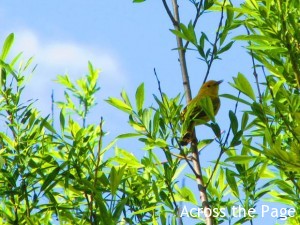 He gets a little carried away. I can “conceive of their existence” without us. But it’s true that we alter the environment, sometimes in ways that enhance the habitat of certain species.
He gets a little carried away. I can “conceive of their existence” without us. But it’s true that we alter the environment, sometimes in ways that enhance the habitat of certain species.
So I guess humans are kind of a complicated subject of nature study. We can do so much good. But there are lots of horror stories, too, of ways that our attempts to “improve” things have resulted in extinction, or pollution, or the dominance of elements that we wouldn’t have encouraged if we’d had a little more foresight. The first job Adam is given in Genesis is to steward the earth, and like so many other things, we do it better in partnership with the Creator — and with some degree of “fear and trembling.”
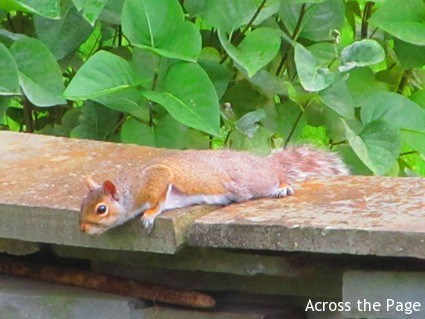

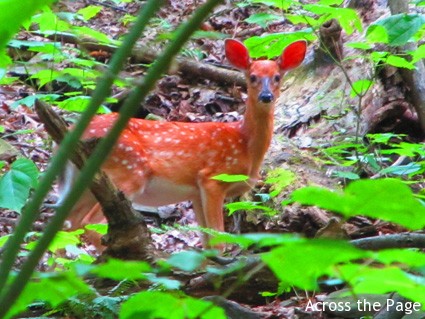
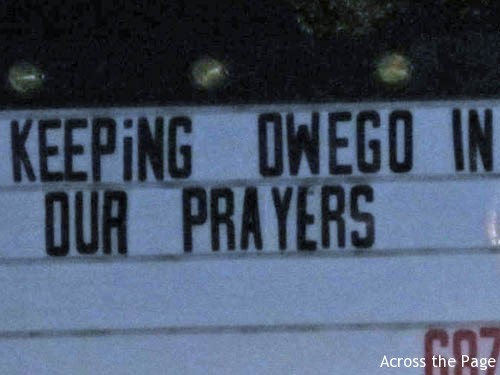
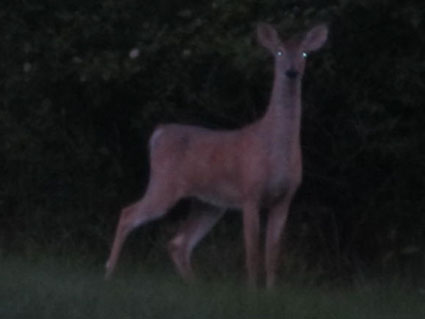

One Comment
Ruth
Great post.